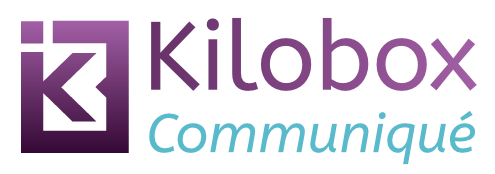I’m sharing these draft ideas with you. Not all of them will relate to your company, culture or intranet, but perhaps you can steal some of these ideas to convince your stakeholders to ‘open up’ the intranet a little.
I’m drafting this for business people who don’t use Twitter, and only care about Facebook because their children are on it. This ain’t news to the social media-heads out there!
Managing, sharing and creating new knowledge
We have no real Knowledge Management strategy, and people rely on difficult documentation and ad hoc tactical tools to share and find knowledge.
Because our intranet does not provide any collaborative tools, except Local Publishing (which no-one uses or understands) our intranet is merely a ‘broadcast’ tool, and does little to share knowledge – it merely announces ‘things’.
Our intranet can become a KM tool for everyone with access.
If our company knew what our company knows we’d double our effectiveness.
If our company knew what our company used to know we’d halve our inefficiencies.
Bill Quirke explains that knowledge resides in pockets within the Company’s informal network. Our communications infrastructure has never been designed to encourage sharing between pockets. We need to use internal communication and tools to create a sense of community and mutual interest to encourage sharing. It doesn’t have to be ‘one’ community; people can be members of several. Knowledge management and sharing do not happen automatically; time and space for conversations are needed, along with tools to cross time and location barriers. Networking lines are different from hierarchical lines, and always have been.
An aim for our intranet could be, not to create an encyclopædia of dead information (although that is part of what our intranet must provide) but to connect people to people, and people to solutions.
Therefore we should provide the technology to give people access to each other (and know why they might talk) and support a culture that gets, and keeps, people talking.
Profiles will allow people to explain and express their role, responsibilities, duties and interests and expertise.
Search engine will help people find people based on expertise, not just name.
Forums (Message Boards) would allow people to ask questions and get guidance from peers and from experts within hours or days. Teams could discuss the best way forward without having to rely on piecemeal emails (that often get missed and leave people out) or waiting for infrequent team meetings.
Forums would also be a great platform for larger engagement. Asking people for ‘Your Ideas’ or calling for information etc.
Comments and commenting on intranet stories would engage and help us learn from each other.
Moderation
There are several moderating systems; different moderation styles are appropriate for different purposes / audiences.
Comments and discussions could be moderated:
After the fact – Moderators (Administrators) could review comments / messages on an ad-hoc basis, using their best judgement and also responding to any concerns flagged up by other people. ‘Flagging’ could be done informally, or formally through a system.
Before the fact – Moderators would log in every day / every hour (as appropriate) and read through all submitted comments. Deleting, editing and then approving for online public display.
Self-moderated – because people must adhere to our code of conduct and our online comms policy, they are beholden to be accountable for what they say and do in the office, on site and online. Guidelines and an online Comms Policy would be created to support respect for self, others and our Company.
Self-moderation is an assumption, and works very well when combined with After the fact moderation.
Self-moderation is what we already have when we consider phone calls and emails. Self moderation will be the default concept within ‘private’ team sites on our intranet.
Before the fact moderation for comments may be necessary on high-level corporate news articles (like the BBC does).
After the fact moderation may be appropriate on non-front page non-corporate intranet articles.
Bill Quirke goes on to remind us that a person’s ability to internalize and act on information is directly linked to how they get to reflect on, question and clarify it.
Again, we’re reminded of the Chinese proverb:
“Tell me and I’ll forget; show me and I may remember; involve me and I’ll understand.”
– which has been oft used by professional communicators.
Online collaborative spaces and expression spaces (Forums, Comments) allow people to engage with a message, not simply passively read it.
We are constantly talking about ‘changing people’s behaviours’ and yet our actions (our comms) often only ‘create awareness’. A new collaborative intranet can truly affect people, rather than ‘tell’ people.
“The aim of internal communication should be to share the thinking, not to announce the conclusions.”
“Involving people early translates into a greater understanding of change and smoother implementation.”
Bill Quirke
“you will not have institutional learning until you have developed the ability to flock.”
Arie de Geus




